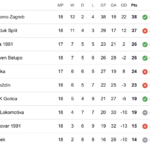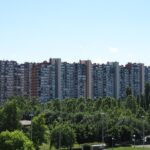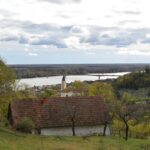A group of prominent intellectuals will present a declaration claiming that most former Yugoslav nations speak different variants of the same language.
On Thursday, the Declaration on Common Language will be presented in Zagreb, Podgorica, Belgrade and Sarajevo. While the content of the Declaration is still a secret, according to unofficial information, there is no mention of the Serbo-Croatian language in it. However, it does mention Croatian, Serbian, Bosnian and Montenegrin languages which are said to be four variants of a common standard language, reports Večernji List on March 28, 2017.
“The drafting of the text of the Declaration included more than thirty experts of various profiles and nationalities from all four countries. The writing itself lasted for several months. The initiative was started late last year, after the conference ‘Languages and Nationalism’ in Sarajevo, when a group of young people from the city, mostly Croats, came up with the idea to draft a text that would encourage changes to language policies in all four countries. After a few more versions, they left the final draft to professional linguists. Making of the final version included several stages, including a two-day meeting of the expanded board of experts in Zagreb, so we could also call it the ‘Zagreb Declaration’. After the meeting, the text was sent for a critical assessment to about twenty consultants, and their suggestions have been incorporated into the final text”, explains linguist Snježana Kordić.
One of the signatories is prominent Croatian writer Josip Mlakić who lives in Bosnia and Herzegovina. “The aim of the Declaration is to leave the issue of language to experts, to those who live of the language (and for the language), and not to leave it to political abuse, as has often been the case so far. It is high time for the language to be returned to its ‘owners’. The Declaration leaves complete freedom to everyone, even to those who might not agree with some of its points. What is important is that it does not leave any room for anyone’s domination and paternalism. This is very important for ‘minority peoples’, such as Croats in Bosnia and Herzegovina, who have long been reduced from a constituent people to a minority”, said Mlakić.
“We in Bosnia, and to a lesser extent in Herzegovina, use a lot of Turkish words that are not in the Croatian standard language. To me it is very important that no one touches that in order to protect some purity of Croatian language. I consider such words to enrich the language, because language is not a fixed, hardened structure. I want to call my language, which is somewhat different from the language spoken in Zagreb, Croatian language without any feeling of inferiority. This is the main intention of this Declaration, as I understand it”, said Mlakić.
One of the signatories is prominent Croatian writer Slobodan Šnajder. “A group of people involved with the issue of language will come out with a common platform after fairly long discussions. We know very well how sensitive this matter is. Among the signatories are writers, poets… Behind us, there is no politics, no country, this or that academy, the academic community – there is nothing that could impose our views. The declaration is not written on anybody’s behalf and does not have any institutional support. We should not mystify differences in a single, common polyvalent language, but we should also not forcefully erase them. There is nothing particularly politically explosive in how the language is called. Personally, I believe that it is best for Croats to call the language ‘Croatian’, and for Serbs to call it ‘Serbian’”, said Šnajder.










